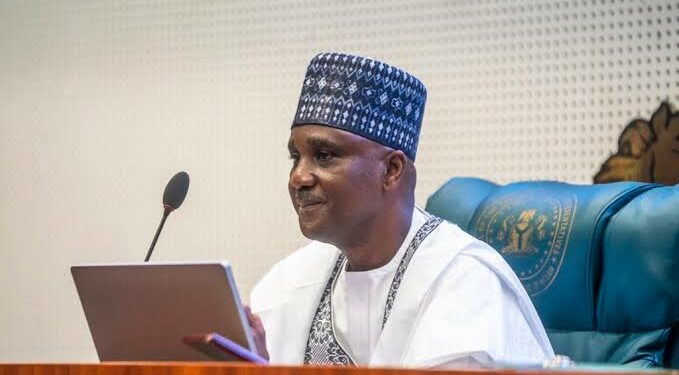The African Parliamentary Advocacy and Reform Group (APARG), a civil society organisation , has called on the leadership of the House of Representatives to jettison the alleged plan to create 145 Standing Committees.
The Director of the group, Amb. Chibuzo Okereke, in an open letter on Wednesday, urged the Speaker Tajudeen Abbas to “strongly resist“ the alleged plan and to reduce the committees to 60 for effectiveness and easy management of legislative work.
According to him, APARG has credible information suggesting that the 10th House of Representatives may increase the committees from the 109 in the 9th House to 145.
“Over the years, especially since 1999 and the 4th National Assembly, the House of Representatives Standing Committees have been progressively fragmented, proliferated and balkanised with each new assembly.
“This is largely due to political considerations and patronage over legislative effectiveness and productivity.
“The trend in political decisions to progressively increase the quantity of the standing committees rather than the quality of the committees has resulted in a serious decline in legislative assertiveness, effectiveness, productivity and value for money.
“This has led to weak oversight design, low participation of members in the numerous perceived low-grade committees, conflicts in the exercise of legislative oversight powers on executive agencies.
He said it had also led to “committees’ incapacity, distress on the limited infrastructure for committee meetings and continuous low perception of citizens on the significance of the governance role of the National Assembly to Nigerians.
“What is worst, Mr Speaker, is that most of the committees due to the scarce resources of the institution of the National Assembly, are overburdened and risk nearly 100 per cent dependence on the executive agencies which they oversight as a source for operational survival in performing their constitutional functions,” he said.
Okereke said that the committee system was the engine room and the life-wire of any productive legislature globally.
According to him, it has been rightly stated that the legislature at plenary is the legislature in an exhibition, while the legislature at the committees is the legislature at work.
He said that the “excessive fragmentation“ and the proliferation of the committee system without consideration of the important principles of robustness and effectiveness weaken the House of Representatives.
Okereke said that an empirical analysis of the 109 standing committees of the 9th House of Representatives showed that several of the committees did not hold any meetings nor performed any significant legislative activities throughout the life span of the 9th Assembly.
According to him, some of them held meetings only about three times in the entire four years.
He urged the speaker to change the tide to engender an effective and productive oversight system and improve the image and perception of the National Assembly.
Okereke said that parliaments in countries such as Germany, France, US, India, Thailand, Romania, Canada, Argentina, Portugal, Senegal, Australia, Japan, UK, Ghana and Kenya have between eight and 48 standing committees.
“Our professional advice is for Mr Speaker and the leadership to jettison the alleged plan to create 145 standing committees.
“Rather, Mr Speaker should drastically reduce the existing 109 committees to about 60 standing committees for effective management, efficiency and measured productivity,” he said.


